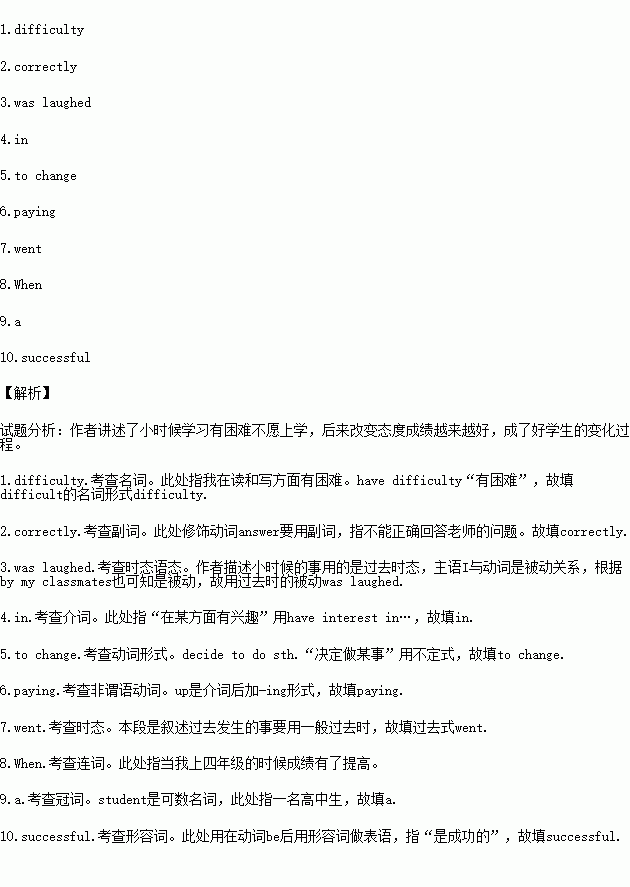题目内容
阅读下面材料,在空白处填入适当的内容(1个单词)或括号内单词的正确形式
When I was in elementary school, I didn’t like going to school. I had ___1.___(difficult) with reading and writing and I always could not answer the teacher’s questions ___2.__(correct). I cried a lot at school because I ____3.___(laugh) at by my classmates. My parents would always get mad at me. I felt very upset and didn’t have any interest ___4.__study.
But then one day, I decided _5.___(change) my attitude towards study. So I ended up ___6.__(pay) more attention in class and I started to practice my vocabulary and spelling skills. Also, I always ___7.____(go) to my teachers to ask for help when I had any trouble. I started to do better in Grade 3. ___ 8.____I was in Grade 4, I was still improving. By Grade 5, I had become the top student in class.
Now as I am ____9.__ senior high school student, I know it might be difficult at first. But I like my past in elementary school, I know if I keep working and don’t give up I will be ____10.___(success)
 阅读快车系列答案
阅读快车系列答案
